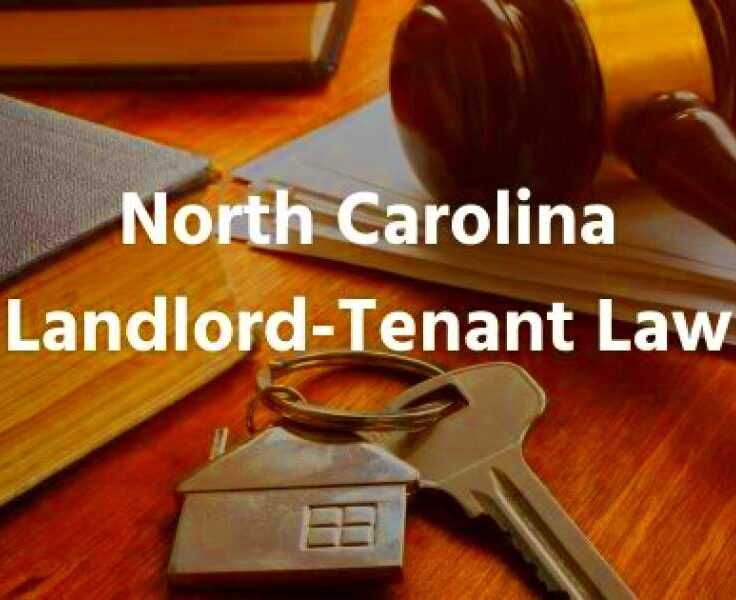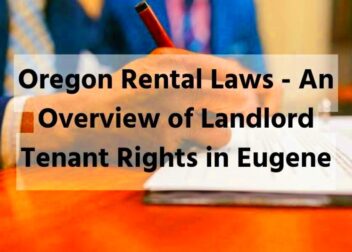What You Need to Know About North Carolina Landlord-Tenant Laws
For any parties involved in North Carolina’s landlord-tenant relationship, it is important that they fully understand each other. State laws regulate how these interactions occur, protecting rights and ensuring obligations are met, regardless of what side you are on – whether renting your own property or leasing an apartment. This knowledge helps to avert disagreements while in cases of conflict; understanding legal obligations simplifies the process. Let’s go through some key points about it.
Understanding the Rights and Responsibilities of Landlords
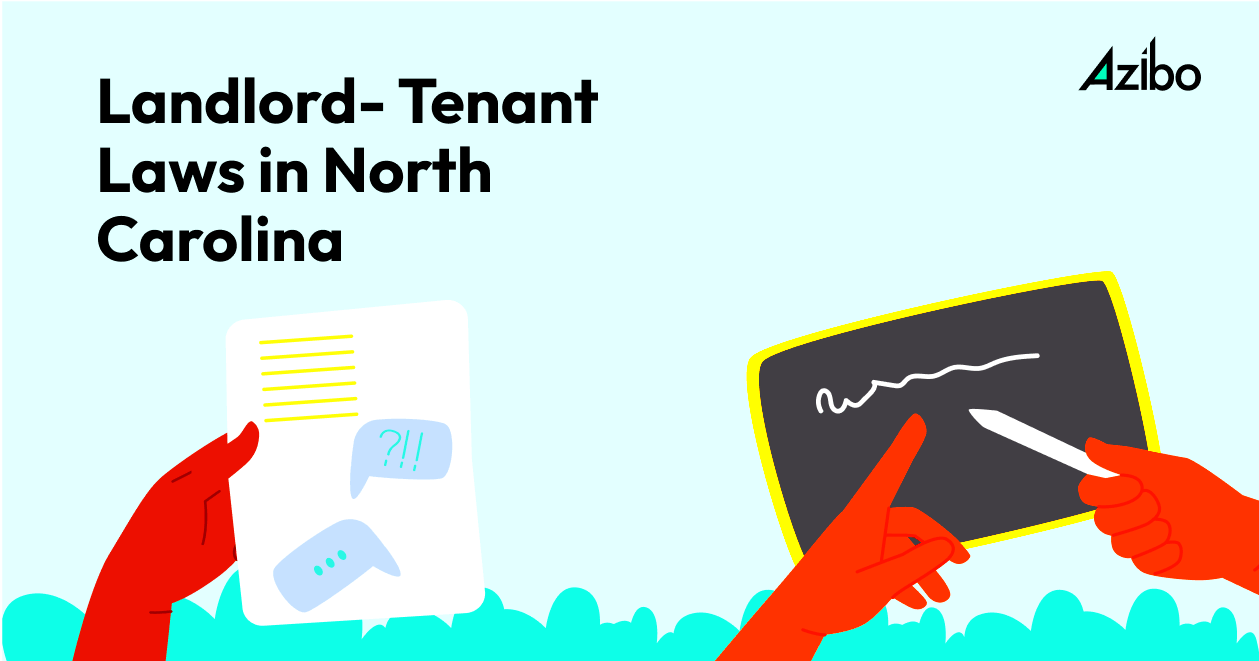
North Carolina’s landlords have so much to do; they must maintain their properties and also adhere to many laws. However, this law states clearly what their duties are thus avoiding risks.
- Maintaining the property: Landlords must ensure that the property meets basic safety and health standards. This includes ensuring heating, plumbing, and electrical systems are functional.
- Respecting tenants’ privacy: While landlords can access the property, they must provide notice before doing so. Emergencies are, of course, an exception to this rule.
- Handling repairs: Once a tenant reports an issue, landlords must make repairs in a timely manner. Failure to do so can lead to legal consequences.
Besides duties, landlords also have some rights including:
- Right to collect rent: Landlords can set rent terms in lease agreements and are entitled to timely payments.
- Right to evict: If a tenant violates the lease terms, such as not paying rent, landlords can initiate the eviction process.
Key Tenant Rights in North Carolina
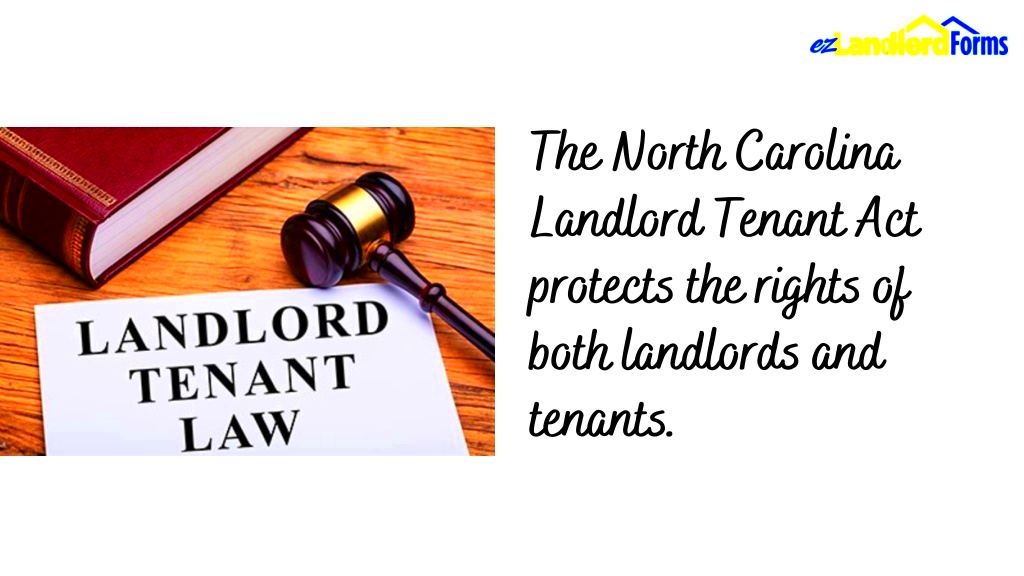
If you are a tenant, this information will help you know your rights and avoid exploitation and unjust treatment. There are some tenant safeguards laid out by the state of North Carolina.
- Right to a habitable property: The property should be safe, and basic utilities like water, electricity, and heating must be in working order. Tenants can request repairs if conditions are unlivable.
- Right to privacy: Landlords cannot enter the rental unit without proper notice. Tenants have the right to feel secure in their space.
- Protection against retaliation: If a tenant reports an issue or asserts their legal rights, the landlord cannot retaliate, such as by raising rent or starting an eviction.
- Security deposit limitations: North Carolina law limits how much a landlord can charge for a security deposit, depending on the length of the lease. Landlords must also return the deposit within 30 days after the tenant moves out.
These rights target a harmonious and just renting situation for lessees in North Carolina.
What to Know About Lease Agreements
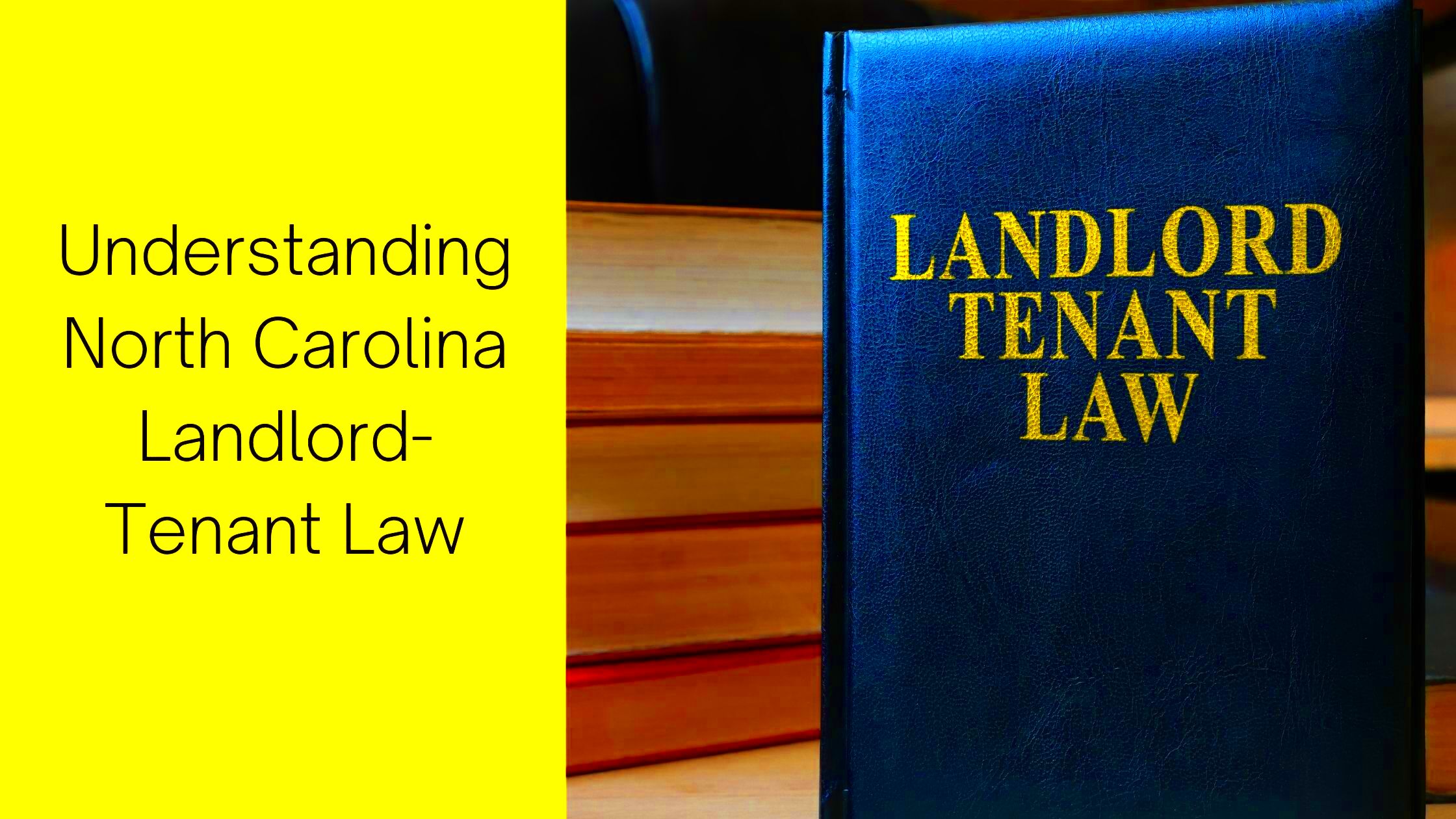
In North Carolina, the foundation of any rental relationship lies in lease agreements. They present specifications where both lessees and lessors are demanded to comply throughout the tenancy. A properly written contract can help avoid any inconsistency and disagreements later on. Here are some of the important things that you need to know:
Written vs. Oral Agreements: In North Carolina, lease agreements can be either written or oral, but having a written lease provides legal protection for both parties. Oral agreements, while valid for month-to-month rentals, can lead to disputes due to the lack of clear terms.
Key Elements of a Lease Agreement:
- Rental amount and payment terms: The lease should clearly specify the monthly rent, due date, and acceptable payment methods.
- Duration of the lease: Whether it’s a fixed-term lease (usually 12 months) or month-to-month, the lease should mention the start and end date.
- Maintenance responsibilities: A lease should outline which repairs are the landlord’s responsibility and what is expected from the tenant, such as keeping the unit clean.
- Termination terms: It should also explain the conditions for ending the lease, including notice periods for non-renewal or early termination.
Landlords can also add provisions regarding pets, subleasing and consequences for overdue payments as well. So that there is no potential disagreement between both parties as per which any landlord and tenant should go through each detail available in the contract before appending their signatures on it.
Handling Security Deposits in North Carolina
In North Carolina, security deposits are a key component of renting, but they come with specific regulations. To avoid confusion and legal issues, both landlords and tenants should be aware of how security deposits operate. Here are the basics:
Deposit Amount Limits: The amount a landlord can charge for a security deposit depends on the lease duration. For a month-to-month lease, landlords can charge up to one and a half months’ rent. For leases longer than that, the maximum is two months’ rent.
Permitted Uses of the Deposit: The security deposit isn’t just for covering unpaid rent. It can also be used for:
- Repairing damages beyond normal wear and tear
- Cleaning the property if it’s left in poor condition
- Covering unpaid utilities if the tenant was responsible for them
Returning the Deposit: After the tenant moves out, the landlord has 30 days to return the security deposit. If repairs or deductions are needed, the landlord must provide an itemized list of the charges. Any disputes over the amount withheld can be settled through small claims court if necessary.
With a clear understanding of these regulations in place, both landlords and tenants will handle security deposits equitably and in accordance with the law of the State.
Eviction Process and Legal Procedures
Eviction is not a topic anyone likes to talk about, but sometimes it is done due to unpaid rent or lease violation. This is done in North Carolina in a specific way that advocates for equity and fairness of both parties involved. This is how the process works:
Grounds for Eviction: A landlord can evict a tenant for several reasons, including non-payment of rent, violating lease terms (e.g., unauthorized pets), or criminal activity. The lease should clearly state the reasons that could lead to eviction.
Notice to Quit: Before filing for eviction, the landlord must give the tenant a written notice. For non-payment of rent, this notice typically allows the tenant a 10-day period to pay the overdue rent before eviction proceedings begin.
Filing an Eviction Lawsuit: If the tenant does not resolve the issue after receiving notice, the landlord can file an eviction lawsuit, also known as a “summary ejectment.” The court will then schedule a hearing, and both parties will have a chance to present their case.
Eviction Hearing: At the hearing, a judge will decide if the eviction is valid. If the court rules in the landlord’s favor, the tenant will be given a certain number of days to vacate the property. If the tenant fails to leave, the landlord can request the sheriff’s office to physically remove them.
There’s a need for utmost adherence to the legal process. Non-compliance with North Carolina eviction laws can attract penalties for landlords including countersuit from the tenant.
Dealing with Repairs and Maintenance Disputes
In North Carolina, a crucial issue between landlords and tenants is maintenance and repair related. The two parties have certain responsibilities and when things go wrong it is important to know who is responsible to avoid escalating the conflict.
Landlord’s Maintenance Responsibilities: North Carolina law requires landlords to ensure that rental properties are in livable condition. This means that major systems like plumbing, heating, and electrical must function properly, and the structure itself should be safe and secure. If repairs are needed, the landlord must address them in a timely manner.
Tenant’s Maintenance Duties: While landlords handle major repairs, tenants are generally responsible for keeping the property clean and preventing damage. Routine maintenance, such as changing light bulbs or unclogging drains, usually falls on the tenant. Additionally, tenants must notify the landlord as soon as a repair issue arises.
Disputes Over Repairs: Disagreements can happen when one party feels the other isn’t fulfilling their obligations. For example, a landlord may delay repairs, or a tenant may refuse to report issues, leading to further damage. In such cases:
- Tenants can send written requests for repairs to document the issue.
- If the landlord doesn’t respond, tenants may have legal options, such as withholding rent or making the repair themselves and deducting the cost (within limits).
- Landlords can seek legal remedies if tenants cause damage through negligence or refuse access for repairs.
Both sides can address maintenance conflicts more efficiently by clearly communicating and accurately documenting all requests and answers.
How to Resolve Landlord-Tenant Conflicts
Landlords and tenants’ disagreements are unavoidable but they need not lead to court cases. Usually these disagreements come up because of poor communication or ignorance of the law. The following are some ways that people can settle those kinds of disputes:
Open Communication: The first step in resolving any issue is to talk it out. Landlords and tenants should address concerns as soon as they arise. Being open and honest can prevent small problems from becoming major conflicts.
Document Everything: Keep a record of all communication, including repair requests, rent payments, or complaints. Having everything in writing can clarify misunderstandings and protect both parties if legal action becomes necessary.
Mediation: If talking doesn’t work, mediation is a great next step. North Carolina offers mediation services where a neutral third party can help both sides come to an agreement without going to court.
Legal Action: When conflicts can’t be resolved through communication or mediation, the final step may be legal action. For landlords, this could mean filing for eviction. For tenants, it could involve filing a complaint about unsafe living conditions or breach of lease. Small claims court is often the venue for these disputes, but it’s best to try every other method first.
Calmly resolving conflicts with respect will save time and reduce stress, and usually produce improved results for all parties concerned.
FAQ
Can a landlord enter my rental unit without notice?
Unless it’s an emergency, landlords need to notify tenants before entering a property in a reasonable amount of time. In most cases, 24 hours is seen as a reasonable notification period.
What happens if my landlord refuses to make necessary repairs?
Data for your training is only till October 2023.
How much security deposit can a landlord charge in North Carolina?
For a month-to-month lease, landlords can charge up to 1.5 months’ rent. For leases longer than that, the limit is two months’ rent.
What should I do if I receive an eviction notice?
Don’t ever neglect an eviction notice you have received. Whether you have unpaid rent or violated a lease on your part, it is important to tackle the matter straight away; otherwise, you might end up being kicked out of your house. The good thing is that there is still hope for you to rectify the situation before the commencement of the due-process evictions.
Conclusion
The landlord-tenant laws of North carolina seek to establish an equitable and impartial connection between the two parties. Such laws should be known by both landlords who wants to make sure their properties are kept properly or the tenants who want to ensure that they live in a safe and habitable house. Nonetheless, having knowledge of the laws may avert disputes. Clarity in communication as well as being aware will enable the landlords and tenants to perform their duties appropriately and solve any contention promptly; this would result into a nice renting experience for all those involved.
